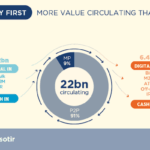‘Failing to Win’ as a Social Entrepreneur: A Q&A with Zoona Co-Founder Mike Quinn
Mike Quinn had no savings when he co-founded Zoona, one of Africa’s earliest fintech companies, in Zambia in 2009.
He also had $50,000 in student debt.
During one of Zoona’s early cash crises, he had to ask his retired parents to mortgage their house and wire him a $100,000 loan.
Yet despite its rocky start, he and his co-founders managed to build Zoona into one of Africa’s first fintech success stories, processing over $2.5 billion in transactions, generating over $26 million in income for 3,000 micro-entrepreneurs across Zambia and Malawi, and raising millions in investment.
James Militzer: Like many social entrepreneurs, you were inspired to launch your enterprise (Zoona) after witnessing the challenges of poverty first-hand as a volunteer in emerging countries. But there are disadvantages to this particular path into entrepreneurship, especially when the founder comes from the Global North: How can a Western entrepreneur correct for this?

Mike Quinn
Mike Quinn: Yes, there are plenty of articles and examples of privileged Westerners parachuting into poor places with good intentions, often leaving behind no impact and sometimes even causing real harm. I have always been aware of this critique and taken a pragmatic approach in my work. I don’t engage in the ideological argument of whether Westerners should or shouldn’t leverage their privilege and capabilities to try and make a positive difference in the world. I believe a better question is: How should Westerners engage? Here are some principles I try to follow:
First, it is important to understand the local context without judgement. I learned as a volunteer with Engineers Without Borders (EWB) Canada that making an effort to genuinely connect with people and practicing self-awareness and humility can go a long way towards building trust and gaining bottom-up insights that can make or break any intervention. I learned later as a master’s student studying development management at the London School of Economics that systems that seem broken to an outsider are often the result of well-entrenched institutional norms exacerbated by previous failed interventions and historical political and economic policies. Affecting real and long-lasting positive change is never simple, and requires an open mindset to “discover what works” as opposed to “showing up with a solution.”
Second, I believe in taking a long-term view, which requires making a long-term commitment. I considered my EWB volunteer placements in Ghana and Zambia as first steps on the long road of a purpose-driven career, where I would make a lot mistakes that I would learn from in order to achieve a lifetime of positive impact. When I moved back to Zambia and met my Zoona co-founders (Brad and Brett Magrath), my fiancee (now wife) and I had discussed up front that we were making a decade-long commitment. This is how long it takes to build something great anywhere, and Western entrepreneurs who come to Africa with the intention of starting a business and going home in a few years rarely achieve what they say in their pitch decks.
Third, I try to leverage my privilege and assets as best as I can to achieve my mission. When I started at Zoona, I helped Brad and Brett secure a $200,000 seed investment from a U.S. impact investor that they didn’t know existed. I then secured an angel investment from Patrick Pichette, who was the CFO of Google at the time, and who I knew as the former Chairperson of EWB Canada. I also recruited my Oxford MBA colleague, Keith Davies as our CFO and fourth partner. With these building blocks, we were able to secure a $4 million Series A investment in 2012, which was one of the first institutional fintech investments in Africa. Brad and Brett knew the local context and had much more entrepreneurial experience than me, but I was able to add value by amplifying what they had already started. Africa is full of talented entrepreneurs tackling really hard challenges, and I’ve always viewed my role as that of an enabler.
JM: Zoona gained significant traction with investors, raising over $30 million in venture investment. But as you’ve written, entrepreneurs are rarely in the power seat during the investment process. Describe some of the worst experiences you had with investors at Zoona. What do you wish more impact investors realized about the struggles of social entrepreneurs?
MQ: I’ve had the full spectrum of experiences with investors, but the worst involved a) last-minute changes in key deal terms and investment structures when we had said no to other options, and b) broken term sheets after months of due diligence that left us on the verge of bankruptcy when we were really counting on the money. When I wrote my book, “Failing to Win,” I realized how emotionally draining these experiences were, and it was really difficult to re-live them by writing about them. I also was able to reflect with hindsight on how much damage they caused to our company. But these negative experiences also made me really appreciate the good experiences I had with many of our investors, especially those that were there for us when times were tough. That is the true measure of a great investor.
One of the challenges I see in the emerging investment ecosystem is how rare it is for investors to have people with any real company-building experience. A successful fundraise is a starting line, not a finish line, and the hard part is turning the money into value and impact. Reality tends to work out differently than the Excel models that investors spend weeks and months analyzing during due diligence. The best investors get this, and are supportive of teams that are customer centric, learn fast, and pivot when necessary. For example, Arjuna Costa from Flourish Ventures (which was an excellent investor) would always coach me during rough patches how every exponential growth curve looks like a rollercoaster if you zoom in close enough. He would always show real concern for how I was holding up during periods of crises, and was just there to listen when I needed someone to talk to.
In contrast, my worst investor experiences were typically with people who had never experienced what is a very common challenge for every entrepreneur: trying not to run out of cash. Anyone who has had to exert every last bit of energy trying to figure out how not to run out of cash knows exactly how hard and stressful this is – especially when you know how many people are counting on you. You never stop thinking about this (not even when you sleep), and it takes its toll on everyone around you, especially your family. Investors who haven’t experienced this are too quick to pile on the pressure by attributing blame or expecting miracles, rather than practicing empathy and helping to find solutions.
JM: What’s the biggest thing you wish you would’ve known about Zoona’s customers in Africa before you started? What’s the biggest thing you wish you would’ve known about your competitors?
MQ: Zoona’s nine-year-old domestic money transfer product was disrupted by mobile money from the big telcos in year 10. We all knew for years this was going to happen eventually, and we were working hard to evolve our business model. What we didn’t correctly anticipate is how long our money transfer product would survive and thrive (we were soundly beating mobile money in Zambia for over four years), and how hard the telcos would come at us eventually to grab our market share quickly.
The durability of our money transfer product created a false impression that we had a sustainable competitive advantage because of our superior agent network. It also led to some reinforcing incentives, such as the desire to protect our margins, which in turn protected our valuation (as investors were valuing us using revenue multiples). Had I fully grasped the risk of two telcos (MTN and Airtel) each investing upwards of $50 million into Zambia and “carpet bombing” the market with thousands of copycat agent kiosks, I would have been much bolder in pushing to cannibalize our money transfer product earlier by slashing our margins and launching our own full-suite mobile wallet. We eventually did this, but the market had already shifted so we were too late.
This is easier said than done though, and requires the benefit of hindsight. When we were on top of the market and were experiencing peak investor interest, the mantra of the day was “expand into new and bigger markets.” The Zambian currency had also imploded against the USD. It would have required foresight and a lot more courage on my part to double down on Zambia instead of trying to expand into new markets. We also would have struggled to raise money with that strategy, even if it was the right one. Decisions are always easier to make with the benefit of hindsight than they are in the moment, when you are in the startup “washing machine” and don’t know how things will play out.
JM: Tell us about your decision to leave Zoona – why did you do it, what’s the current status of the company, and how did you know it was time to move on? Did you learn anything from the process about the best way to hand control over to others, or to build companies that outlive their founders’ involvement?
MQ: In 2018, Zoona experienced a series of major shocks, including a cholera epidemic in Zambia that dropped our money transfer volumes, a large Series C investment round collapsing at the last minute, and the telco competitive attack that I mentioned above (I describe these in my book). These forced us to quickly downsize and pivot. After several months of doing my best to navigate them, it became clear to me that I was no longer the best person to lead the company into the next phase. It was also clear that the company didn’t need me any longer. I had created a vision and strategy that was no longer possible following our pivot, and it was past time for the company to have a change of leadership.
My original co-founders Brad and Brett Magrath stepped up to the challenge. Brad took over as CEO of Zoona to complete the remaining restructuring work and get the business on a solid financial footing. Brett led the creation of an exciting new B2B fintech spin-off called Tilt.
I was very fortunate to have had such capable and experienced co-founders who could take over as I stepped away. I also realized how much they had grown over the 10 years we worked together, and I knew the company would be in the best possible hands. After such an intense decade, we all knew ourselves and each other so well that when I said it was time for me to step away, it was a no-brainer for all of us and we just got on to executing it.
My main advice to other founders is to very purposefully invest in your leadership team and constantly try and work yourself out of a job. If you’re CEO, this includes investing in your co-founders. In hindsight, I probably could have stepped out even earlier, but I didn’t for reasons of pride and optics. But when I did, I was thankful to have such capable partners who could seamlessly step in and do an even better job than me for what the company needed.
JM: You’ve described Zoona’s tumultuous development not as an outright failure, but as “failing to win” (the name of your new book about your experience with the company.) What’s the difference between “failing to win” and “losing” – and why is it important for an entrepreneur to make that distinction?
MQ: To be clear, Zoona is not a failure. On the contrary, Zoona was on the leading edge of an emerging ecosystem for many years and became a case study that many people followed and even copied. We helped to put Zambia and Malawi (and to a large extent Africa) on the global fintech map, and we achieved many successes despite constantly battling through adversity. We enabled millions of unbanked and underserved consumers in Zambia and Malawi to send and receive $2.5 billion in money transfers and international remittances. We created jobs and income for 3,000 agents and tellers, many of whom were young women with few opportunities before Zoona. Zoona’s former employees have dispersed across the financial inclusion ecosystem, and many are thriving in new leadership roles with growing companies. Looking back, I’m very proud of what we achieved and the impact we had.
However, Zoona failed to win under my leadership, which is different. In December 2017, our active customer base was 25% of the adult Zambian market, we had nearly 200 staff, and our mission engraved at the front of our office was “to improve the financial health and well-being of one billion people.” Shortly thereafter, we lost most of those customers and almost all of the staff. We created so much value over the years, but we failed to capture it and evolve to the next level as a company. There are many lessons to be learned from this outcome that I have done my best to process, and that I want to share with others to improve their chances of a better outcome.
My book is also a very personal story, as I failed to win. My identity was intertwined with Zoona’s since the very beginning (even my dog was named Zoona). Looking back, I could not have exerted one additional unit of energy above and beyond what I put into the company. But I also walked away with zero equity value, and have had to adjust to life as a middle-aged entrepreneur with a family and no salary. It took me some time to get back on my feet, and writing my story down really helped me reflect on how valuable the journey has been. I’m thankful for every moment of it – even the hard parts, because that’s when I learned the most.
That’s the second meaning of my book’s title: I believe that failing is important so that you can win. Zoona is still standing, Tilt has emerged and is an exciting new innovation, and so is my new venture, Boost. Failure lays the foundations for innovation to occur. It is also the best forcing factor for personal growth.
JM: Relatedly, what advice would you give an entrepreneur whose enterprise does fail: How should they spend the weeks/months after their business ends? How can they determine if they should give entrepreneurship another shot?
MQ: The best advice I received when I left Zoona was to a) take a break, b) connect with your friends and family, and c) talk about your experience. A startup journey is an intense period, and leaving a startup that you were at for a long time that failed to win can be very traumatic. You need to allow yourself time to decompress and heal, which is best done by surrounding yourself with loved ones who care about you and can help you through it. In my case, I sat down and starting writing after a couple of months, because I needed to process everything I had been through. Writing my story down helped me to reflect, learn and ultimately move on.
There is a lot of pressure when you leave to start something new right away. I initially put this pressure on myself, but it’s also natural for people to ask, “What are you going to do next?” all the time. After receiving some good advice, I gave myself permission to step back for a few months to just be present in the world. I loved spending more time with my family and reconnecting with people I had not spoken to in a long time.
And sure enough, my entrepreneurial juices began to flow again. Within a few months, I was bouncing around new startup ideas. I loved starting with a blank canvas, and asking myself big questions like “What is my purpose?”, “What problem do I want to work on for the next 10 years of my life?”, and “What brings me energy and joy?” I went through a process to design the next phase of my life, and soon I had a rudimentary deck for a new venture that I started sharing with advisors and mentors. Feedback helped to refine my idea into something more tangible, and then I started talking to others who I wanted to work with. Pretty soon I was fundraising for a seed round for my next startup, with the goal of enabling 10 million informal small businesses to thrive in Africa’s digital economy within 10 years. I have no doubt I will experience many failures along the way, but I’m no longer scared of failing and will view these as course correcting signals en route to achieving this goal.
I can honestly say, since leaving Zoona I’ve had one of the most productive and enjoyable years of my life. I’m now excited and energized to start a new journey building another purpose-driven company.
JM: Now that you’re preparing to start a new African fintech company, what’s one thing you did wrong at Zoona that you won’t repeat – and one thing you did right that you (and other new entrepreneurs) must keep in mind?
MQ: In my new venture, I will build a team with the fewest best people to achieve our goal. At Zoona, we fell into the “hire ahead of the curve” trap. This meant that our staff overheads were always too high, which put us in a very difficult position when our growth stagnated. It also meant that we always had more people than we needed, which in turn meant that many people were operating well below their capacities. I’ve learned the importance of recruiting for only essential roles, and ensuring the people in them are the best possible fit with the right combination of values, abilities and skills.
The best thing we did at Zoona – which I will take to my new startup – is to be purpose-driven in everything we do. We built a purpose-driven culture at Zoona that attracted some of the best and brightest people and aligned everyone around a shared mission bigger than Zoona as a company. Creating this requires leadership from day one, and I’m really excited to do this even better my second time around.
Note: Mike Quinn is funding his book through a crowdfunding campaign – contributions are accepted, and the book can be pre-ordered at mikequinn.co.
Photo credit: Steve Petrucelli
- Categories
- Finance, Social Enterprise



